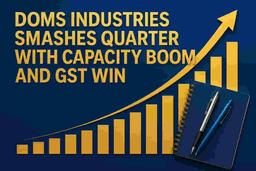Beyond AI: Bank of America's Bold Call for Global Value Stocks!
Research Reports
|
Updated on 13 Nov 2025, 12:43 pm
Reviewed By
Akshat Lakshkar | Whalesbook News Team
Short Description:
Detailed Coverage:
Bank of America strategists are advising investors to diversify their portfolios beyond the dominant U.S. technology and AI sector, which has seen recent pullbacks. They believe that while the AI buildout is set for continued growth, the market offers significant opportunities globally, particularly in international value stocks with small market capitalizations and emerging market dividend players.
These international small-cap value stocks are projected to offer returns comparable to U.S. growth stocks but with reduced volatility, lower correlation to U.S. markets, and more attractive valuations. Many emerging market dividend stocks currently yield over 4%, outperforming benchmarks. The firm also points to emerging market debt as an attractive area, expecting global rate cuts to boost these bonds, which already offer competitive yields.
Bank of America suggests a diversified approach, often through exchange-traded funds (ETFs), rather than individual stock picking. While not predicting a massive U.S. market collapse, the strategists argue that global rallies may have longer-lasting potential as countries prioritize self-reliance and stability, potentially leading to a weaker U.S. dollar.
Impact This news could lead to a reallocation of investment capital away from U.S. growth stocks towards international value and emerging market assets. It suggests a potential shift in market leadership and offers Indian investors a strategy for diversification to mitigate risks associated with over-concentration in any single market or sector. The emphasis on value and dividends could benefit investors seeking stable, income-generating assets alongside growth. Rating: 8/10
Difficult terms: AI buildout: The process of developing and deploying artificial intelligence technologies across various sectors. Nasdaq: A U.S. stock exchange primarily dealing with technology companies. Market capitalization: The total value of a company's outstanding shares of stock. Emerging markets: Countries undergoing rapid economic growth and industrialization but are not yet fully developed. Dividend players: Companies that regularly distribute a portion of their profits to shareholders as dividends. EM debt: Bonds or other debt instruments issued by governments or corporations in emerging markets. Volatility: The degree of variation of a trading price series over time, typically measured by the standard deviation of logarithmic returns. Correlation: A statistical measure that describes the extent to which two variables fluctuate together. Low correlation means they move independently. Valuation: The process of determining the current worth of an asset or company. Exchange-traded funds (ETFs): Investment funds traded on stock exchanges, much like stocks, that hold assets such as stocks, bonds, or commodities. Enterprise buyers: Businesses that purchase goods or services from other businesses. Household creditors: Individuals or entities who hold debt owed by households. Federal Open Market Committee (FOMC): The monetary policymaking body of the Federal Reserve System of the United States. Chipmakers: Companies that design and manufacture semiconductor chips. AI enablers: Technologies, software, or hardware that facilitate the development and application of AI. US dollar: The official currency of the United States.
Consumer Products Sector

Vishal Mega Mart Q2 BLOCKBUSTER: Profit Rockets 46% - Retail Giant's Meteoric Rise Ignites Investor Frenzy!

D2C Meat Sensation Zappfresh Reports Astonishing Profit Surge & Revenue Boom! Investor Alert!

Page Industries Stock Plummets After Earnings Miss: Jockey Maker Faces Investor Sell-off!

Cadbury Maker Mondelez Unleashes Global Biscoff Sensation in India! Sweet Shock for Rivals?

Doms Industries Explodes: Capacity Boost, GST Win, and Record Growth Ignite Stock Surge!

Red Fort Blast SHOCKS Delhi Markets! Fear Drives Buyers ONLINE, Businesses Plummet!
Brokerage Reports Sector

Syrma SGS Tech Skyrockets: 62% Profit Surge, Defence & Solar Entry! Is This India's Next Big Manufacturer?









